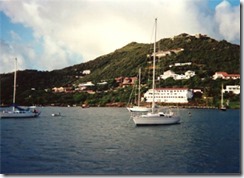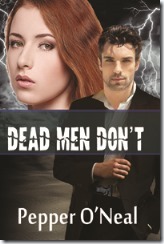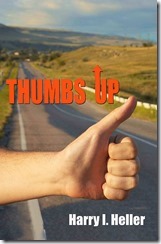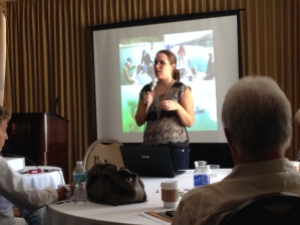How to Have an Adventure and Survive It by Pepper O’Neal
If you’ve read my bio, you’ll know that I’m an adrenalin junkie. Even as a child, I always had the urge to move on and see what was around the next bend in the river or down a lonely country road. I blame that on my nomad Cherokee ancestors. My family moved around a lot when I was growing up as my father was never content to settle down in one place. My mother and sisters hated all the moving. But I loved it. For me it wasn’t being in a new place that excited me. No, it was the “getting there” that was the thrill. Once I was “there” and saw whatever there was to see, it was time—at least as far as I was concerned—to move on. I’m afraid I drove my poor family crazy—everyone except my father who had the same degree of restless feet syndrome that I did. I was never one of those kids asking, “Are we there yet?” Oh no, I had my nose glued to the car window so I could watch the world go by. But after we’d been in a new place for a few weeks, I was asking, “Can we go now?” Even today, driving by a lonely county road makes me yearn to turn the car around and find out where that road goes. Doesn’t matter where I’m going or how late I am, I want to know what’s OUT THERE! Thankfully, I also have the luck of my Irish ancestors, so not only have I had to opportunity to have adventures, few of them have cost me much financially. Of course, there’s all kinds of adventures—some are good, some bad, and some ugly. (Sounds like the title of a spaghetti western, doesn’t it?) But, hey, an adventure is an adventure, right?
So how do you have an adventure yourself without paying a fortune? I’m not talking about going first class here. That’s a vacation, not an adventure. Vacations are fine, as far as they go. And some might even classify as adventures. But if you want an experience to remember—fondly, or not so—for the rest of your life, take a chance and don’t go first class. You’ll have some experiences money could never buy.
Okay then, how do you start? Once upon a time, you could work your way around the world. But that’s no longer easy or even advisable. Too many unscrupulous people out there. And human trafficking is a real problem. In fact, that’s the main plot point of my new book Black Ops Chronicles: Dead Men Don’t, which came out in June. My heroine wasn’t looking for an adventure, but sometimes the best adventures happen when we aren’t looking for them. And anything you survive can be classified as a “good” adventure, which you will someday look back on and laugh about. Of course, this takes time—and with some adventures, it takes more time than with others.
Even if you aren’t lucky enough to have an adventure fall into your lap, there are still inexpensive ways to travel. If you like boats, or think you might, contact the marinas along the closest coast to where you are and/or join the local yacht club. Most communities have a yacht club. Both of these things will put you in contact with boat owners. You’ll usually find at least one or two privately owned pleasure cruisers that are looking for crew. Sometimes, a single person sailing to someplace specific may want some company for the trip, as sailing by yourself is a lonely proposition. If you’re a male, handy with your hands, and willing to work, it’s fairly easy to snag a ride to almost anywhere in the world. If you’re female, it’s a bit harder, not to mention riskier, but it’s still a possibility. Especially if you can cook. While I was working as a researcher in Mexico and the Caribbean, I met a number of people who had hitched a ride on a yacht as a cook or crew member. Something to remember: some yacht owners can’t afford to keep their boats as pleasure yachts all year round. So they hire the boat out and provide the crew, including the cook. And some of them pay you fairly decent wages. You would live aboard the yacht, crew, or cook for the paying customers and get well paid for it. And see some really beautiful places. Just check out the boat owner, or renter, carefully. Talk to other crew or ask for references. Or both.

Don’t want to get on a boat? No problem. Check ads in adventure magazines for jobs in foreign countries or for people traveling who want a companion. A lot of people still do, especially the elderly. And don’t forget the internet. But check the jobs and/or people out carefully before you commit. And if you’re already visiting in a foreign country, go for the cheaper modes of travel to get around, like trains and buses. One of the most memorable adventures I had was when a friend and I took a train trip across Mexico. (I don’t recommend going there these days as it’s gotten way too dangerous, but there are other places you can go where this information applies.) We paid for first class, which was very cheap. But for the whole three-day trip, we spent most of our time in second class, fascinated by the people and the things they had brought with them on the train: live chickens and pigs, baskets and barrels of exotic fruits, and whatever they’d bought at the market wherever they’d been and were dragging home with them. I remember one guy even had a toilet (new and unused, thankfully) he was taking home. My friend spoke excellent Spanish and translated for me, so we got to know some of our fellow passengers and heard some amazing stories of survival. As a writer, I gleaned a wealth of characters and story material for my novels.
Now whether your idea of an adventure is the same or different than mine, I’ll share the following tips with you that I believe apply to all adventures:
1. Don’t Go Alone. Whether you’re male or female, but especially if you’re female, don’t go off alone. Bad things can happen to people in that situation, and I’m not talking just about getting mugged, though that can happen, too. Plan to take a friend or two with you when you go if at all possible. If not, make some friends going your way and tag along. That way if something happens, you have some help.
2. Make Sure Someone Knows Where You’re Going. People can disappear while traveling, so make sure that someone knows where you are, where you’re going when you leave Point A, and when you’re expected to arrive at Point B. That way, there’s a chance if you get hurt, stranded, or abducted, someone will notify the authorities.
3. Don’t Put All Your Money in Your Wallet. Wallets can get lost or stolen. So have a money belt (or a money pouch you wear under your clothes) to keep your money (and ID) in and transfer it in small bits to your wallet as you need it. Then if your wallet goes missing, you aren’t stranded without any funds or ID.
4. Leave Your Prejudices at Home. Strive to have an open mind about the people and places you encounter. Yes, they’re going to be different than what you’re used to. And they may well seem primitive and crude by your standards. But hey, if you hadn’t wanted to experience something different, why did you go there in the first place? If all you’re willing to experience is what you already know and are comfortable with, you might as well stay home. Give the people and the experiences a chance. You won’t regret it.
5. Know Where the Nearest Consulates and Marinas Are. Whatever your nationality, know where your nation’s consulates are located in whatever country you’re visiting. Shit happens, folks. Believe me, I know. So before you leave, get on the internet and find out what cities have one of your nation’s consulate’s offices. The consulate is your main representative when you are in that country. If you get into trouble (lose your money or passport, unintentionally commit a crime, etc.), they are your best (and sometimes only) source of help. Also find out where the marinas are if you’re going to be on or near the coast. Marinas can collect mail for you and put you in touch with people who can help you out in an emergency. Write this important information down and keep it with you. You may never need it, but at least you have it if you do. And it may not be possible to access the internet if you need the information later. So be prepared.
6. Mix with the Natives. The beauty of immersing yourself in the culture you’re visiting is that you truly get to experience what life is like for the people who live there. If you’re friendly, most people will respond and, when they do, they’ll not only tell you where the real bargains in lodging, food, and entertainment are, they’ll take you to some of the private places that tourists never get to see or experience. If you don’t speak the local language, try to find someone who does to translate for you. Even if you have to pay them a few bucks, it’s worth it.
I’ve had some wonderful adventures following these rules. Of course, I also had some I hadn’t expected. I nearly got mugged in St. Thomas, spent a night in an abandoned motel in the middle of nowhere in southern Mexico, cowered in a hotel bathroom during a fierce tropical storm in St. Martin, broke my leg in Cozumel and my ribs in Tecamachalco, had to climb a mast—at sea in the middle of a hurricane—to repair the misen boom on a boat, took more than one shower with cockroaches the size of small dogs, and was medevac’d by helicopter during a gale after being creamed in the head by flying debris. As a friend once told me, if most people knew what was in store for them when they set off on an adventure, they’d never have the courage to start out on one. But, hey, I survived, so that makes them all “good” adventures. And now I can laugh about them—or at the very least, chuckle.
<><><>

A strange man has come to save her…but is he friend or foe?
Anderson Merritt’s been kidnapped, but when a stranger comes to rescue her, she isn’t sure he is who he says he is. He claims to work for her father’s boss. But someone close to Andi set her up, and now she doesn’t know who to trust. Every man she’s ever known has seen her only as a tool to get to her father or his money, so why should this one be any different? As the sparks between them ignite, and the danger escalates, Andi has to choose—go off on her own, or trust that some men really are what they seem.
He doesn’t want to hurt her…but he may have to if she doesn’t come willingly.
Ex-CIA black ops specialist Levi Komakov doesn’t believe in hurting women, but when the place is set to blow and Andi won’t cooperate, he has no choice to but toss her over his shoulder and carry her out of danger, determined to keep her safe in spite of herself. But the beautiful little spitfire doesn’t make it easy for him. With her abductors seemingly always one step ahead of him, Levi suspects there’s a rat in the woodpile, but who? Could it be someone close to Andi’s father, someone in the FBI, or someone in the family Levi works for? When a new threat appears, and even the CIA can’t help him keep Andi safe, Levi puts everything on the line—but will it be enough?
Buy Now: http://www.amazon.com/Black-Ops-Chronicles-Dead-Dont-ebook/dp/B00LAN3B98
<><><>

Award-winning author Pepper O’Neal is a researcher, a writer, and an adrenalin junkie. She has a doctorate in education and spent several years in Mexico and the Caribbean working as researcher for an educational resource firm based out of Mexico City. During that time, she met and befriended many adventurers like herself, including former CIA officers and members of organized crime. Her fiction is heavily influenced by the stories they shared with her, as well her own experiences abroad.
O’Neal attributes both her love of adventure and her compulsion to write fiction to her Irish and Cherokee ancestors. When she’s not at her computer, O’Neal spends her time taking long walks in the forests near her home or playing with her three cats. And of course, planning the next adventure.
Website: http://www.pepperoneal.com






